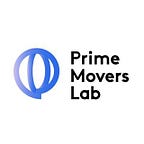Why We Invested in Lyten
Electric vehicle (EV) sales leaped 55% in 2022. Just in the US, EV sales are expected to go from a sub 5% market share today to estimates that range from a conservative 30% to an ambitious 50% market share by 2030. However, the industry’s future remains contingent on the ability of the market to produce enough batteries and the uncertain raw materials supply chains of lithium and nickel, manganese, and cobalt (NMC), which are all critical materials in lithium-ion (Li-ion) batteries used in EVs. Global lithium demand far exceeds supply. Nickel and cobalt are increasingly difficult to procure given both geopolitical and sustainability issues. The battery industry was expected to surpass $360 billion/year in revenues by 2030, according to McKinsey, but that progress is now in limbo. The battery and EV markets need a breakthrough now more than ever that does not rely on nickel, cobalt, or rare-Earth metals and extends EV ranges by 3X, 5X, or more. This is why Prime Movers Lab is excited to announce that we are leading a $200 million Series B round in battery and advanced materials innovator Lyten.
In the burgeoning EV market, batteries remain the supply pinch point. Virtually every major automobile OEM is searching for batteries that are more energy-dense, lighter, lower cost, and can solve sustainability and supply chain issues, particularly around nickel and cobalt. With Lyten’s advances in 3D graphene at its core, the company stands poised to transform the EV market with its lithium-sulfur (Li-S) batteries that are substantially more energy-dense, lighter, and cheaper than today’s Li-ion batteries. Lyten’s materials and batteries can be easily integrated into existing manufacturing processes and EV cell architectures.
Li-S batteries have the potential to transform the battery industry via a number of structural advantages:
- Energy density: Li-S has a theoretical maximum energy density of up to 2600wh/kg, which is circa 10x that of today’s lithium-ion batteries, and more than circa 5x what is being promised by solid-state batteries. Lyten has articulated a path to build batteries with an energy density of 750–1000wh/kg, which will have their batteries perform at around 3X to existing and future Li-ion batteries and 2X of future solid-state batteries.
- Raw materials/supply chain: A significant benefit of Lyten’s Li-S batteries is that they do not need nickel manganese cobalt oxide (NMC) for their chemistry. Cobalt is a very high-risk commodity, with supply being limited and highly concentrated in countries like the Democratic Republic of Congo and refining capacity controlled by Chinese conglomerates. Auto OEMs want batteries that have short supply chains, and Lyten, unlike almost any other battery manufacturer, could source all of its raw materials from North America. Li-S also does not use nickel, manganese, cobalt, or other expensive metals. The chemistry design for Lyten’s batteries therefore materially improves supply chain constraints for input materials.
- Cost: The combination of high energy density (meaning a small physical package per unit of energy storage) and the elimination of the most expensive metals in batteries (cobalt, in particular) gives Lyten’s battery construction a substantial cost advantage over other batteries.
- Temperature performance: Lyten’s batteries work well in a wider temperature range than either lithium-ion or solid-state. They have less need for active cooling systems than current EV batteries, reducing total battery system weight and cost.
- Fire safety: The company’s batteries are also far safer than conventional Li-ion batteries and do not pose a fire hazard. They can be punctured, and do not explode or catch fire like lithium-ion batteries because they lack cathode materials that can oxidize.
- Compression: Unlike solid-state batteries, which are being promised for vehicles in the 2025–26 timeframe, Lyten’s battery cells do not need to be physically compressed to work, which again reduces EV weight, complexity, and cost.
Lyten’s batteries have the potential to address all of these issues and we believe their batteries can become a “category killer” in the EV battery market.
While Lyten’s focus is commercializing its Li-S battery technology, Lyten’s core 3D graphene could become a technological disruptor in multiple industries, including (i) composites, (ii) sensors, and (iii) coatings. Each of these sectors represents very large total addressable markets. While the focus of Prime Movers Lab’s investment thesis in Lyten revolves primarily around its battery technology, each of these other areas are material commercial development opportunities for the company. Further for Prime Movers Lab, Lyten stood out in a field of battery companies in the depth and breadth of the management team. Any one of the division managers at the company could be the CEO of most start-ups, even at later stages.
We believe Lyten is a “win big or go home” investment that will help define the future of EVs. Prime Movers Lab is known for making big, bold investments in category-defining companies — and we believe that Lyten will be one of those breakthroughs.
Prime Movers Lab invests in breakthrough scientific startups founded by Prime Movers, the inventors who transform billions of lives. We invest in seed-stage companies reinventing energy, transportation, infrastructure, manufacturing, human augmentation, and agriculture.
